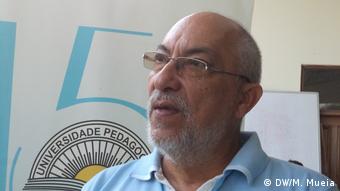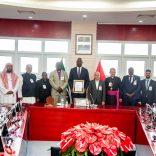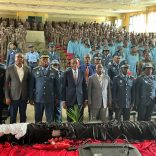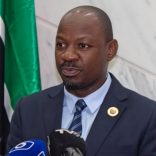Chapo backs 'Mozambique First' initiative - 'National Moment of Prayer' on 28 August
Mozambique: Post-election conflict will not end with election of governors

DW / City of Quelimane, capital of Zambézia
Academics and clerics in Mozambique’s Zambezia province doubt that even the election of governors will suffice to end post-electoral tension in the country.
Afonso Dhlakama, the leader of Mozambique’s largest opposition party, Renamo, recently announced an agreement with President Filipe Nyusi on the election of provincial governors in the upcoming elections. Officially, the Mozambican head of state has not yet made an announcement on Renamo’s longstanding demand, but academics and religious leaders in Mozambique’s central Zambezi province doubt that even the election of governors will suffice to end tension in Mozambique.
Academic Quincardete Paulo thinks that, just as there were disagreements between the Frelimo government and Renamo over the elections in 2013 and 2014, the election of governors will not spell the end of political tension in Mozambique.
“Keeping the country stable? I can’t believe it. This will bring changes to the country’s governance which it has not known for 40 years. Governors nominated by means of elections will be difficult to accept. First you have to think about accountability. Who will be responsible for the accounts? And how are they going to coordinate accounts, since there will be different party governors? I don’t have much faith in this,” he says.
Manuel de Morais, another academic, feels the same.
“This is all covered by decentralisation, but it all depends on how it’s going to be done. I don’t see this ending with the nomination of the governors, since this goes well beyond simple appointments.”

Hear opposing opinions
Father Juvencio Kulibena also his doubts.
“It may happen that there is peace or it may happen that this will not bring peace. It depends on how the administration is carried out by the parties in each province. While one governs, the other will feel dissatisfied with the politics of the other and this creates unease and obstacles. This will trigger conflicts as well, but it also depends on openness. Often, what ruins us is not being open to listen to opposing voices.”
Many citizens in Zambezia in central Mozambique were pleasantly surprised when President Nyusi recently warned the Defence and Security Forces to prepare for changes in their ranks following agreements between the government and Renamo.
“The president’s speech was didactic and eloquent, and I liked it,” De Morais said. “It made me think that we have indeed to prepare for change.”

Father Juvencio Kulibena feels the president’s speech revealed courage and heralded social inclusion for those feeling overlooked by the Mozambican state. “He may have found a policy and a way of governing that will integrate those who feel estranged and marginalised for having opinions contrary to Frelimo’s way of governing.”
subtitle – Agreement could lead many people to the polls
DW Africa’s interviewees believe that an agreement between Renamo and the Frelimo Government would persuade many people to vote, reducing abstentions in municipal elections scheduled for 2018 and the general election of 2019.
According to the Zambézia Electoral Administration, abstention in the general elections of 2014 was more than 60 percent, a situation that worries the STAE Director Luís Cavalo.
“We are going to intensify the electoral campaign to see if we can reduce this number,” he says.












Leave a Reply
Be the First to Comment!
You must be logged in to post a comment.
You must be logged in to post a comment.